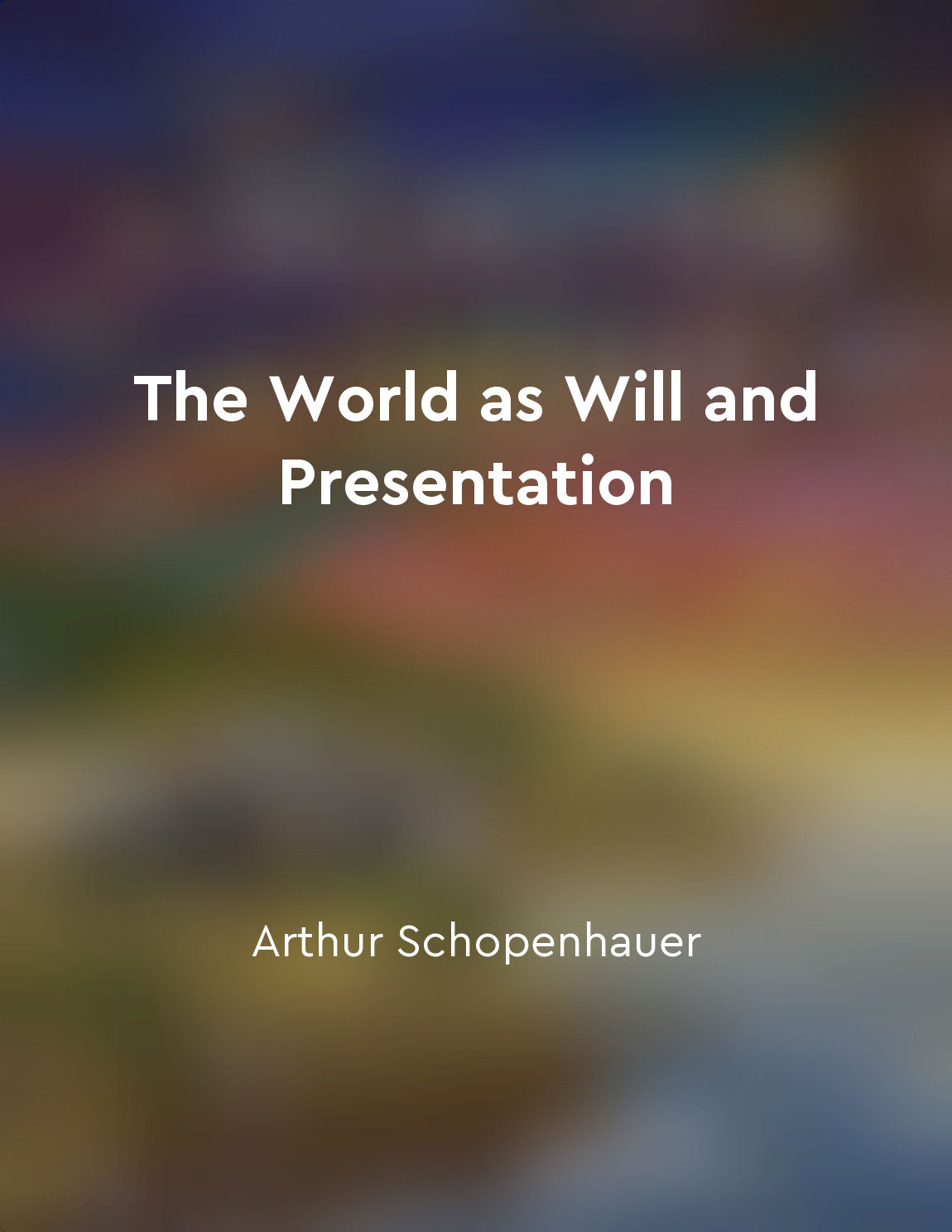The intellect often leads us astray from true wisdom from "summary" of The World as Will and Presentation by Arthur Schopenhauer,David Carus,Richard E. Aquila
The intellect, that faculty which enables us to think, reason, and understand, is often praised as the pinnacle of human intelligence. However, Schopenhauer argues that the intellect is not always a reliable guide to true wisdom. In fact, he suggests that the intellect can often lead us astray from true wisdom. According to Schopenhauer, the intellect is limited in its ability to grasp the deeper truths of existence. It is bound by the constraints of logic and reason, which can only take us so far in our quest for knowledge. True wisdom, on the other hand, transcends the intellect and reaches into the realm of intuition and insight. Schopenhauer distinguishes between two types of knowledge: knowledge that is acquired through the intellect, and knowledge that comes from a deeper, more intuitive source. He argues that true wisdom can only be attained through the latter, as it allows us to see beyond the limitations of the intellect and tap into a higher form of understanding. The intellect, with its reliance on concepts, categories, and logic, tends to fragment and distort our perception of reality. It separates us from the true essence of things and leads us to mistake the map for the territory. In this way, the intellect can be a barrier to true wisdom, as it prevents us from seeing things as they truly are. Schopenhauer suggests that in order to attain true wisdom, we must go beyond the intellect and cultivate our intuitive faculties. We must learn to trust our instincts, listen to our inner voice, and tap into the deeper currents of consciousness that lie beneath the surface of our rational minds. Only then can we hope to glimpse the true nature of existence and attain a profound understanding of the world around us.- Schopenhauer's insight into the limitations of the intellect serves as a powerful reminder that true wisdom cannot be found through reason alone. It requires us to go beyond the confines of our rational minds and tap into a deeper, more intuitive source of knowledge. By doing so, we can free ourselves from the illusions of the intellect and open ourselves up to a higher form of understanding.
Similar Posts
See challenges as opportunities for growth
Life is full of challenges. Every day, we are faced with obstacles that test our patience, resilience, and strength. Many peopl...
Acceptance of oneself is key to inner peace
In one of the stories, a man named Gobind was troubled by his own thoughts and feelings. He could not find peace within himself...
Embracing challenges as opportunities for growth
When difficulties arise in our lives, we often view them as obstacles to be avoided or overcome. We may feel frustrated, discou...

Display loyalty and devotion in relationships
One must always demonstrate unwavering loyalty and devotion in all relationships. This is a crucial aspect of maintaining healt...
Transcending the material world
The concept of transcending the material world is a central theme in the teachings of the Bhagavad Gita. The text emphasizes th...


